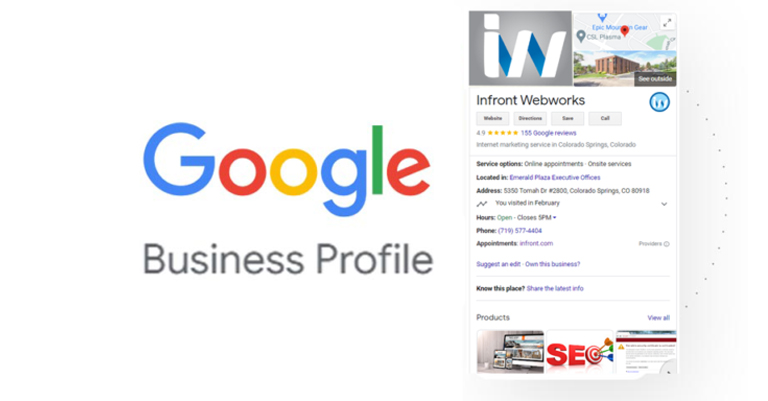Search Engine Optimization (SEO) determines how your website ranks on Google. Most people put a lot of time into improving their on-page SEO and neglect the other side of the coin – off-page SEO. Off-page SEO techniques include things you do outside your website. The primary goal of off-page SEO is to convince your audience that your website is trustworthy and that it provides value. In this blog, you’ll learn some easy and secret off-page SEO techniques, even if you’re brand new to SEO!
What is Off-Page SEO?
Off-page SEO is about things you do outside your website to help it rank higher on search engines. While on-page SEO focuses on improving your website’s content, off-page SEO builds your website’s reputation and trust. It’s like getting “votes” from other websites and people online. For example, a well-known blog might link to your website, people might share your posts on social media, or your business might get good reviews online. These actions make search engines trust your website more, which helps it rank higher.
Why is Off-Page SEO Important?

Off-page SEO helps search engines know that other people think your website is important. Google and other search engines use this to decide how high your website should rank. It’s important because it builds trust by getting links from respected websites, kind of like getting a thumbs-up for your content. It also makes your website easier to find, so you have a better chance of ranking higher. Plus, it helps bring more visitors to your site when people click on links or share it. Without good off-page SEO, even the best websites might have trouble standing out!
Proven Off-Page SEO Techniques
Create Shareable Content
Great content is super important for SEO because people love to share, talk about, or link to helpful things online. To make your content something people want to share, write blog posts that solve problems, include fun facts or surprising numbers, and use cool pictures like infographics. Here’s a simple tip: add social media buttons to your website so it’s easy for people to share. The more people share your content, the better your SEO gets, and more visitors will come to your site!
Build High-Quality Backlinks
Backlinks are links from other websites that lead to yours, and they show that your website is valuable. You can get backlinks in a few ways. One way is through guest posting, where you write helpful articles for other websites and include a link to your site. Another way is outreach, where you ask bloggers or influencers to link to your content. You can also try broken link building by finding broken links on other websites and suggesting your content as a replacement. Remember, quality is more important than quantity—a link from a trusted website is much better than lots of links from less reliable ones.
Use Social Media
Social media doesn’t directly help your website rank higher, but it brings more visitors and makes people aware of your site. To get started, share your blog posts on platforms like Facebook, Instagram, or LinkedIn. Use trending hashtags to help more people find your content, and make sure to respond to comments or questions from your followers. When more people see and share your content, it helps more people discover your website, increasing its reach.
Claim Your Business Listings

Online directories like Google My Business, Yelp, or Bing Places help people find your business. They’re great for getting local customers to visit. To make your listing better, add correct details like your address, phone number, and hours. Upload clear pictures and reply to customer reviews to show you care. This works really well for businesses like restaurants, stores, or services.
Leverage Online Reviews
Positive reviews show both search engines and people that your business is trustworthy. To get more reviews, ask happy customers to share their feedback, and make it easy by giving them direct links. Always respond politely to negative reviews to show you care. Here’s a tip: never fake reviews. Search engines can tell, and it might hurt your reputation.
Collaborate with Influencers
Influencers have lots of followers and can help share your message with more people. Working with them is a great way to reach a bigger audience. You can partner with influencers to promote your content, send them free products or services to review, or ask them to link to your website. Make sure to pick influencers whose followers are interested in what you offer. For example, a fashion blogger would be a good choice to promote a clothing store.
Join Online Communities

Online forums, Facebook groups, and Reddit are great places to connect with people who are interested in your business. To join in, answer questions about your industry, share useful advice without trying to sell too much, and add links to your website when it makes sense. Being active in these communities helps you look like an expert and brings more visitors to your site.
Monitor Your Backlink Profile
Not all backlinks are helpful. Some links from spammy websites can hurt your rankings. To keep track of your backlinks, use tools like Ahrefs, Moz, or SEMrush. If you find bad links, you can remove them using Google Search Console. Keeping your backlinks clean helps search engines trust your website.
Host Webinars or Online Events
Webinars are a great way to get people’s attention and show that you’re an expert. They also encourage participants to share your website. To host a good webinar, pick a topic your audience will find interesting, promote the event on social media or through email, and record the session so you can share it later as helpful content. Webinars help you look like an expert and bring more visitors and links to your website.
Repurpose Content
Repurposing means taking something you already made and turning it into something new. This saves time and helps more people see your work. For example, you can turn a blog post into a YouTube video, make a picture chart (infographic) from a long article, or share fun quotes from your article on social media. When you use different ways to share your content, more people will notice and share it!
Focus on Brand Mentions
Brand mentions occur when people talk about your business, even if they don’t link to your website. Search engines see these mentions as a sign that your business is trustworthy. Use tools like Google Alerts to see when people talk about you to get more brand mentions. Thank them, and if they didn’t add a link to your website, kindly ask them to include one. Doing this helps more people notice your business and trust it!
Sponsor Events or Charities

Helping with local or online events is a great way to make people notice your business. You can donate to a local charity, support an online event, or sponsor a contest or giveaway. When you do this, people usually talk about your business and share links to your website. This helps more people find you and makes your website more trusted by search engines!
Engage in PR Campaigns
Public relations (PR) is a way to get your business talked about in the news and linked online. To make this happen, share fun or interesting stories about your business, tell people about new products or big achievements, and talk to reporters who write about your kind of work. When your business gets in the news, more people trust you and visit your website!
Common Off-Page SEO Mistakes
Avoid these mistakes to keep your website’s rankings safe:
Buying Backlinks
Buying backlinks might seem like a quick way to improve your rankings, but it’s against Google’s rules. If you do this, your website could face penalties, which would hurt your SEO instead of helping it.
Ignoring Reviews
Negative reviews that you don’t respond to can damage your reputation. It’s important to address these reviews politely and professionally to show that you care about your customers.
Over-Spamming Forums
Posting too many links in online forums just to promote your website can annoy users. This might lead to your links being removed and could hurt your reputation in the community.
Focus on Ethical Techniques
Instead of taking shortcuts, focus on honest, helpful methods that build trust over time. Ethical SEO practices create lasting success for your website and business.
Final Thoughts
Off-page SEO might sound hard, but it’s really about making people trust your website and building good connections. When you do it the right way, it can help your website rank much higher!
Focus on quality, not just doing a lot. Make helpful content, talk to others online, and check how you’re doing often. If you keep working at it and stay patient, you’ll see great results! Try these tips today and watch your website improve!




